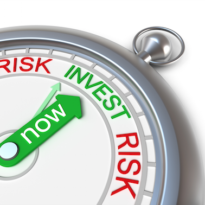With change comes both risks and opportunities. It’s positioning to avoid the former and benefit from the latter that is key, says Roger Webb, deputy head of Sterling Investment Grade & Aggregate, Aberdeen Standard Investments
This article was first published in the November issue of Professional Paraplanner.
The global Covid-19 pandemic has undeniably caused chaos across economies and financial markets, and it will likely take years before the former order is restored. When chaos is at its worst, the expectations for fund managers to predict the impossible always seem to rise. That impossible question is usually “what will the future bring?”
Perhaps a better question would be to ask: “What change in the future is possible, and is not currently priced correctly as a risk?” For any business, change is constant and there’s often an element of chaos it has to cope with. Today’s environment has increased that chaos and placed emphasis on the second question regarding the price of change.
The returns from corporate bonds are asymmetric, as when things go wrong, losses are materially larger than the gains which usually occur. Problems faced by companies range from simple economic slowdown, becoming less competitive, or the inability to adapt to sudden changes of direction in their industry. The latter is likely to be most prevalent over the coming years with Covid-19 accelerating the pace of change for many.
Challenges
With or without the pandemic, a number of industries were already facing structural challenges. The auto industry, for instance, has been experiencing the revolution of electric vehicles (EV) becoming more mainstream. A bigger and related challenge is being faced by the oil and gas industry with the environmental need to reduce fossil fuel usage. Airlines are already impacted by this imperative, and furthermore, the pandemic has shut down airspace all over the globe and put passengers off travelling by air – potentially permanently for some.
These three industries are all facing structural changes which were in train before Covid-19 caused chaos around us. Others have seen longer term potential threats accelerate as a result of the virus. Retail was already challenged as “bricks to clicks” took over, but in March the “click” became our only way of shopping. Not all retailers are doomed to failure as some have the good fortune to be in the right sector, such as food or DIY, and many already had an online presence. Others will have to adapt quickly to survive. In the telecoms sector we might expect to find an all-round good news story but what about those companies which generate cash-flow through roaming? When we don’t travel we don’t pay those exorbitant roaming fees. However, like many other sectors there are groups that benefit from the change – working from home changes the broadband demand, for example.
Sifting through this bad news can lead to some excellent buying opportunities, again looking for the areas of change being mispriced. There are oil companies getting ahead of this change that are well worth investing in. There are airlines that have strong balance sheets that are able to withstand the pandemic and work to improve their environmental footprint, and there are car companies leading the charge into EV – particularly for the mass market. Even the maligned real estate sector has not been all bad news. The owners of retail space and offices have hit the headlines recently, but there will still be a requirement for both sectors going forward. Urban space may not be in such high demand as they were pre-crisis but out of town and suburban space may replace them, so all is not lost. The big winners in real estate are the data centres. Internet traffic has surged during lockdown as even more ways of working, communicating, shopping and entertainment has shifted online. This will lead to an acceleration of many of the tailwinds for this relatively new sector.
Change in motion
Every sector we look at has to face change at some stage. Many of the changes occurring now were already in motion before the unprecedented events of 2020, with ESG being a common driver. Covid-19 has accelerated some of these issues and introduced new challenges.
The pandemic has had a dramatic effect on nearly every aspect of daily life, particularly the way we work, play and travel. With many of these changes set to persist beyond a vaccine, numerous industries are having to adapt.
Big changes create big risks, but also big opportunities for companies. Understanding which ones are best positioned to avoid these risks and benefit from these opportunities will be key to successfully navigating investment grade and high yield corporate bond markets.



































